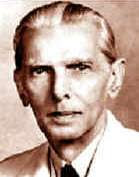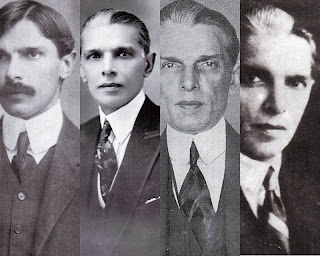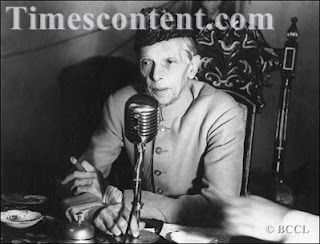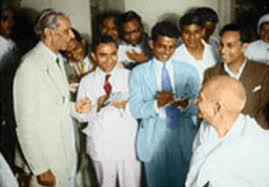By Asim Khan
 |
| Quaid-e-Azam Mohammad Ali Jinnah (left) with Lord Mountbatten (right) |
There has been a lot written about him; there is a lot that has been said of him. From Larry Collins, Dominique Lapierre to Stanley Walport- all agreed on one thing: this man, this Jinnah, this leader and founder of Pakistan had resolve of a man unbreakable even by the might of the mightiest, the British Empire, the connivance and huge presence of Hindu pressure and by all who thought that to create Pakistan was something beyond comprehension and reason. But he stood his ground against all who promised, tempted, and applied pressure from all directions and yet they could not move him, not even an inch. He was to give all, right to their end of days the question how he single handedly carried this responsibility and what were those elements that made him unique in all sense; as a leader, as a tactician, as one of the finest implementer of law, as a symbol of governance and system which we all forgot, the very citizens and leaders of Pakistan after his death.
In all his numerous speeches given in whatever little time he had, it paved way for all to see and to learn and to practice how Pakistan should develop its economic policies, foreign policies, protect rights of its minorities, based on justice and fairness, a society modeled on the principles of Islam, where all will be able to contribute to its success and progression. And we all forgot within months of his departure.
It is still time for Pakistan and Pakistanis to wake up from its slumber and to invoke the spirit of its founder to bring back this country to its feet. All the challenges we see around us, all the opposition we face amongst ourselves and from outside can be dealt with if we could only understand the persona of Jinnah and his life and understand the mechanics in creation of a country that became second largest Muslim country in 20th century. A presence, a home for all where fairness and justice will exist. But alas, this was not to happen as we forgot our very own sacrifices, our very own people and our very own founder Jinnah.
Instead of following him and his vision; we followed our instincts based on greed and promotion of values against all what he created and practiced; against all what the vision of Iqbal and his philosophy stood for; against all what Chaudhry Rahmat Ali envisioned. We forgot Jinnah and all those very people that stood by him against opposition the world had never seen. These people exist in all of us. Never a day that goes past, when we do not come across the saying and quotations from any of these, but we have turned all this into a big ceremony. We have turned Jinnah into just a mere symbol. A place where he rests now needs no salutes, no visitor’s book, no swarming crowd to take pictures. It is his words; it is his life that needs to be lived in all of us. We have betrayed him in last 61 years. It is still time to appreciate and to revive that spirit in Pakistan and in all of us, and to forget these differences that we have created. We must become more understanding and tolerant of each other and work together. It is this challenge that is the need of the time and our responsibility.
Remember a young boy, seventeen years of age, arriving at Southampton. Remember a person who learnt the ways of life in those dreary months of winter. Remember that person who once walked near river Thames, immersed in his own thoughts questioning himself what change means and how it will be brought. Even Jinnah had no idea at that time but he learnt to reason well in a language that was once remote and alien, he learnt that understanding Law will take him far but he never imagined that one day he will fight for something and in a way no one had done it before. One day he will fight for the hopes of millions, for cause greater than anything he had imagined, or any of us in years to come. Imagine how it feels to be part of that change and history and the destiny, to make a separate homeland for all of us, to carry those aspirations in years to come through thick and thin. Little did he know that he will one day stand with Gandhi, Nehru, Patel, Mountbatten and the whole British Empire- all the opposing forces. But he fought well with all his mind and his words and actions to turn this dream into reality- a reality which no one could ever understand and accept to this day. It is upon us now as individuals and as a society and as leaders of this nation to understand the cause and all what it took.
It is this man Mohammed Ali Jinnah who became in the process our Quaid-e-Azam, our leader and founder of Pakistan. It is this man we owe our responsibility to as free citizens of Pakistan. It is this man Jinnah, his words and his vision we owe our alliances to. It is this man we owe our debt resulting from his endeavor to turn this dream of a separate homeland for millions of Muslims. It is this man, Mohammed Ali Jinnah, Quaid-e-Azam, a man for all seasons we owe our lives to and to Pakistan.






